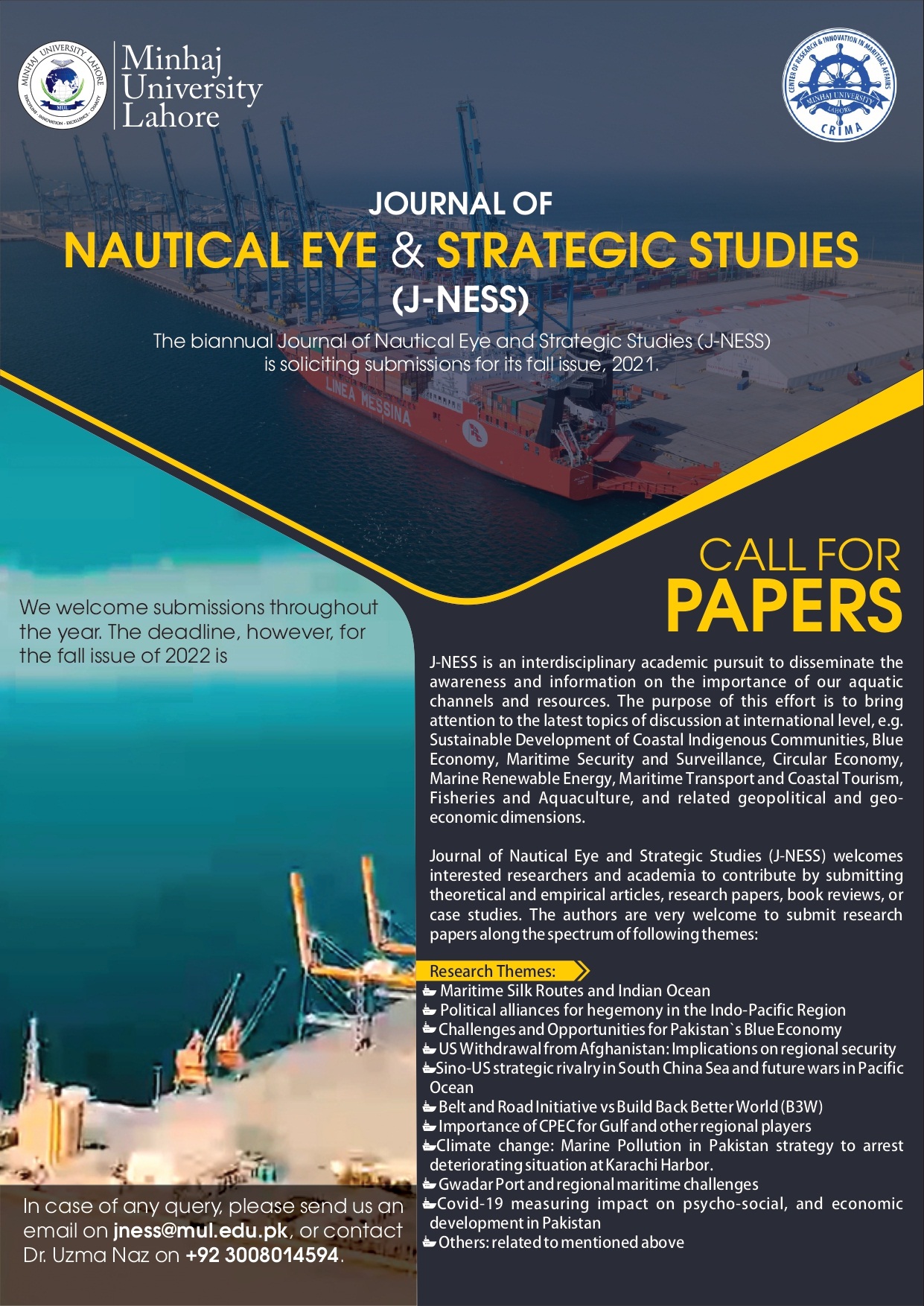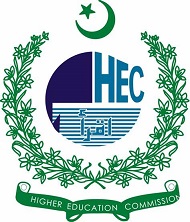MECHANISM OF MARINE POLLUTION - THE CASE OF PAKISTAN
Keywords:
Marine, Environment, Pollution, Ecosystem, ContaminationAbstract
The aim of this paper is to study the major causes of marine pollution & its negative effects on coastal areas of Sindh and Balochistan in Pakistan; the role of the regulatory setup to control marine pollution; and the status of local & international legal implications in Pakistan. In addition, due to ports & shipping developments/activities, they are causing environmental and human health problems by disrupting the ocean ecosystem and biota. This paper also identifies the direct and indirect sources of marine pollution through ports & shipping activities, infrastructural developments, and the discharge of wastes into the sea from different sources. It also explores the failures of the system to control marine pollution due to the lack of political will, unsustainable management practices, lack of traditional knowledge and modern standards and technologies, lack of community participation, and not ratifying the mandatory laws and conventions on marine pollution nor proper implementation of them. The analysis indicates the weakness of the implications of the legal setup as per international standards (by the International Maritime Organization (IMO)). The results showed that only pollution by ports and shipping activities is an insignificant reason for the weakness of the shipping business. The analysis shows that legal bodies, the Ministry of Maritime Affairs (MOMA), associated organizations, policy matters, the role of ports of Sindh and Balochistan, and coastal communities have less understanding about management and procedures to control pollution in the coastal areas and in the sea. It can be concluded that pollutants can cause a variety of biological effects, including metabolic dysfunction, genetic damage, and phonological changes. Therefore, it is recommended that the government formulate specific policies within the framework of Sustainable Development Goals (SDGs 14)-2015-2030 and UN Ocean Decade Challenges for 2021–2030 that would develop the significant objectives and implementation plans for the green environment, which would contain potential procedures for the sustainable growth of ports and shipping businesses through compliance with IMO standards and maintain the positive relationship between national and international levels.
Downloads
Published
How to Cite
Issue
Section
License
Copyright (c) 2023 Journal of Nautical Eye and Strategic Studies

This work is licensed under a Creative Commons Attribution-NonCommercial 4.0 International License.










